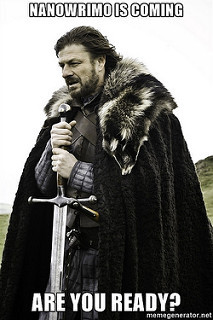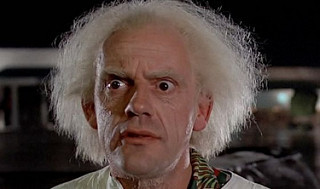Kristen Lamb's Blog, page 36
November 22, 2016
The Single Largest Secret to Success

Image courtesy of Flickr Creative Commons, courtesy of Steve Snodgrass
All of us start out writing for different reasons. Perhaps we have dreams of seeing New York Times Best Seller or USA Today Best Seller in front of our names. Perhaps we long to be a household name like Stephen King or even a legend like J.K Rowling.
Some of you might want to see Winner of the Pulitzer Prize on the cover of your books or see your books made into television or major motion pictures. Some writers simply want to finish that one novel and publish it so they can say they wrote a novel.
Every dream is equally noble. There are no right or wrong goals only your goals (and goals evolve as we do). Yet, I would be remiss if I didn’t point out that the level of sacrifice and self-discipline required to Write a Novel in a Year is different from the author who longs to be the next Neil Gaiman.
When I started writing I thought I knew everything. It wasn’t until I went to my first writing conference that I understood the truth. I was too dumb to know how much I didn’t know. When I later gained genuine mentors (professionals) I was horrified to realize my writing wasn’t the only thing that needed a major overhaul. My character, habits, and attitudes did too.
In all bluntness, I began as a lazy unteachable ass who believed in luck not work. Most of all I had no concept of how important it was to set and maintain boundaries.
I hadn’t yet learned to guard the muse.
That had to change if I was ever going to reach my dreams. Our muse is precious and there are some critical habits we must learn to keep her healthy. We need to feed her good things—rest, books, classes, music, good friends. But at the same time? We must also protect her. This is critical for success in writing (or actually anything for that matter).
Guard Your Energy

Image courtesy of Flickr Creative Commons via Michele Africano
Energy is to the muse what blood is to the body. Drain out 3 quarts from your wrists and see how you feel. Similarly, we need to make sure we aren’t dragging the muse through emotional razor wire.
Trust me, legendary authors guard their energy the way a concert violinist guards her hands. Energy that leaks out into unproductive endeavors is stealing vital life-force from the muse and pros get that.
Yet how many emerging writers are clinging to writing groups filled with folks who complain and never write? Holding onto family members or friends who are addicted to crises? How many writers are reckless with posts or comments on social media?
All that mental energy hemorrhaging into drama or onto social media in fruitless ways is taking away vital creativity that could be going into their work. But instead of their talent being focused in a novel, it is being bled into arguments on Facebook threads, tweets or in a blog’s comment section.
Cut OFF Toxic People

Image via Flickr Creative Commons, courtesy of Ted Van Pelt
The best way to have a healthy muse? Don’t poison her. If a friend or family is emotional gangrene? CUT THEM OFF.
Toxic people always have problems and they really aren’t interested in solving them. They might say they want advice or support but this is a lie. They simply want an audience to nod to their excuses and indulge their anger, self-pity or addictions. Hanging out with them is like volunteering to be in a constant emotional full contact sport.
And yeah I am mixing the hell out of metaphors but I want you guys to understand how important this all is.
Negative emotions are not only draining, but after prolonged exposure, we can become physically ill and damage the muse (sometimes permanently).
Toxic people are always in a heightened emotional state. Their behavior creates stress and stress is something our bodies will react to in a primal way. When we sense danger, blood transfers from the cerebral cortex (higher thinking centers) to the reptilian brain (fight or flight). This serves a purpose. If a car is on our child, this isn’t the time to remember all our clever Nietzsche quotes.
But the problem is our bodies can’t tell the difference between outrunning a bear and merely arguing with a recalcitrant sibling or a troll on Facebook.
Lizard Brain is NOT creative.
Additionally we are who we hang around. Thoughts become actions, actions become habits, habits become character and character becomes destiny.
Got people in your life who want to complain? Make excuses? Still partying like it’s 1999? Just let them go lest they rub off.
Beware of Overconfidence

Over the weekend I saw the movie Doctor Strange and loved it! But how did Dr. Stephen Strange end up battered and broken in a temple in Nepal instead of being the world’s richest and most renowned surgeon? He grew overconfident and believed he could drive on rainy roads at high speed while talking on the phone and looking at e-mail.
And he ended up with two crushed hands.
Out of ego, he failed to guard what was most precious to doing his job. And yeah it is a Marvel story but there is a neat lesson we can use.
When we rant on social media, tweet whatever flies through our head, get tangled up in friend drama or family fiascos, that is being reckless with the muse. And sure maybe the first 393 times we speed down that wet highway talking on the cell phone and texting goes fine. But it only takes something going wrong once for us to drive off a cliff and crush the muse.
And most of us don’t have Plan B of living in a temple learning to fight in other dimensions.
Choose Our Battles

It’s easy to believe that “we can handle it” but in all honesty? That is a dangerous game.
Toxic people have more access to our lives than ever before. One of the reasons I recommend writers avoid ranting about politics on Facebook (unless one longs to be the next Bill Maher or Anne Coulter) is that, among many other reasons, it is a tremendous mental drain that can have devastating consequences (refer to guarding energy).
One of the biggest reasons many emerging writers will never bear fruit is they lack the discipline to choose their battles.
We are anointed to change the world with books, not argue with idiots on social media.
We can get pulled into on-line tiffs with folks who have no intention of changing their views. Many are on there for the sheer joy of being contrary or even cruel. I even have a mantra on Facebook when I see something that someone posts that upsets me and I feel the need to “say” something and “set them straight.”
I am NOT the Jackass Whisperer.
Then I unfollow them out of my feed and move on. We must understand that social media and building a platform is our job, but we need to manage distraction and compulsion. Sure we might initially get that “feel good” zing, but the cost of fruitless battles are far higher than the payoff. Every time we do this we are stealing energy from the true payoff—our finished and published books.
Toxic people are a great distraction on-line but also in life. We might think, “Oh I will write after I help Such-and-Such” get sorted. The problem is Such-and-Such has zero intention of ever being sorted. Misery just loves company.
So why are we handing them our limited and precious creative energy?
Where the Mind Goes the Muse Follows

Image via Flickr Creative Commons courtesy of Tequilamike
Years ago I had the pleasure of working with Ferrari and was invited to some pretty amazing events, including getting to meet professional race car drivers. When drivers are racing, the most important component to winning is not crashing. Seems silly, but it’s true. If your car is in flames, odds are a trophy is not in your future.
But when race car drivers train, the most vital lesson is to keep the eyes where they want the car to go. Where the mind goes, the man follows. Look at the wall? Hit the wall. Look at the finish line? Cross the finish line.
Thus, a big way we can guard the muse from crashing is to keep focusing on where we want to go.
In the end, any kind of success is all about discipline. Like anything else, our muse gets stronger the more we feed her the good stuff and the better we guard her from the bad.
What are your thoughts? Do you struggle with distraction? In person or on-line? I know this time of year is hard on a lot of us when it comes to setting boundaries. Did you have to let go of writing friends who always complained and never wrote? Who couldn’t take criticism? Who refused to learn and grow? Did you find that you did better once you got away?
What are some ways you guard your muse?
I love hearing from you!
And to prove it and show my love, for the month of NOVEMBER, everyone who leaves a comment I will put your name in a hat. If you comment and link back to my blog on your blog, you get your name in the hat twice. What do you win? The unvarnished truth from yours truly.
TREAT YOUR MUSE!!!! Check out the Upcoming Classes
Remember that ALL CLASSES come with a FREE RECORDING so you can listen over and over. So even if you can’t make it because the holidays are crazy? No excuses! Take time to be good to yourself! All you need is an internet connection!
How to Get Your Book Made Into Film
Class Title: How to Get Your Book Made Into Film
Instructor: Writer/Producer Joel Eisenberg
Price: $45 USD Standard
Where: W.A.N.A. Digital Classroom
When: WEDNESDAY November 30th, 2016 1:00 PM E.S.T. to 3:00 P.M. EST
How do you cull the essence of your novel into a feature film? How do you expand your short story for a television series? Finally, when the written adaptation is complete, how do you navigate the Hollywood maze for real money and credits?
Joel Eisenberg has been there. As an independent producer of over 20 years, Joel has developed content or sold projects to networks such as TNT, CBS-Decades, FOX Studios, Ovation TV and more. As the former head of EMO Films at Paramount Studios, Joel is also a professional networker, having hosted entertainment network events at the Paramount lot, as well as Warner Brothers, Sunset-Gower Studios and more. His work has been featured in many media outlets, including CNN, The Wall Street Journal, The New York Times, NBC, The Los Angeles Times, TV Guide and even Fangoria.
Important Class for After NaNoWriMo! You might have a New Year’s Resolution to query a novel. Doesn’t matter. Treat yourself to an early Christmas present!
Pitch Perfect—How to Write a Query Letter & Synopsis that SELLS
Class Title: Pitch Perfect—How To Write a Query Letter & Synopsis that SELLS
Instructor: Kristen Lamb
Price: $45 USD Standard
Where: W.A.N.A. Digital Classroom
When: FRIDAY December 2nd, 2015 7:00 PM E.S.T. to 9:00 P.M. EST
You’ve written a novel and now are faced with the two most terrifying challenges all writers face. The query and the synopsis.
Query letters can be daunting. How do you sell yourself? Your work? How can you stand apart without including glitter in your letter?
***NOTE: DO NOT PUT GLITTER IN YOUR QUERY.
Good question. We will cover that and more!
But sometimes the query is not enough.
Most writers would rather cut their wrists with a spork than be forced to write the dreaded…synopsis. Yet, this is a valuable skills all writers should learn. Synopses are often requested by agents and editors and it is tough not to feel the need to include every last little detail. Synopses are great for not only keeping your writing on track, but also for pitching your next book and your next to that agent of your choice.
This class will help you learn the fundamentals of writing a query letter and a synopsis. What you must include and what doesn’t belong.
So make your writing pitch perfect with these two skills!
Plotting for Dummies
Class Title: Plotting for Dummies
Instructor: Kristen Lamb
Price: $35 USD Standard
Where: W.A.N.A. Digital Classroom
When: SATURDAY December 3rd, 2016 2:30 PM E.S.T. to 4:30 P.M. EST
Are you tired of starting book after book only to lose steam and be unable to finish? Do you finish, but then keep getting rejected? Do you finish, but it takes an ungodly amount of time? Sure, great you land an agent for your book, but you don’t have FIVE YEARS to write the next one?
This class is here to help. The writers who are making an excellent income are not doing it off ONE book, rather they are harnessing the power of compounded sales. This class is designed to help you learn to plot leaner, meaner, faster and cleaner (even for PANTSERS!)
Learn the basic elements of plot, various plotting techniques, how to test your seed idea to see if it is even strong enough to be a novel and MORE!
Blogging for Authors
Class Title: Blogging for Authors
Instructor: Kristen Lamb
Price: $50 USD Standard
Where: W.A.N.A. Digital Classroom
When: FRIDAY December 9th, 7:00 PM E.S.T. to 9:00 P.M. EST
Blogging is one of the most powerful forms of social media. Twitter could flitter and Facebook could fold but the blog will remain so long as we have an Internet. The blog has been going strong since the 90s and it’s one of the best ways to establish a brand and then harness the power of that brand to drive book sales.
The best part is, done properly, a blog plays to a writer’s strengths. Writers write.
The problem is too many writers don’t approach a blog properly and make all kinds of mistakes that eventually lead to blog abandonment. Many authors fail to understand that bloggers and author bloggers are two completely different creatures.
This class is going to cover:
How author blogs work. What’s the difference in a regular blog and an author blog?
What are the biggest mistakes/wastes of time?
How can you effectively harness the power of algorithms (no computer science degree required)?
What do you blog about? What topics will engage readers and help create a following?
How can you harness your author voice using a blog?
How can a blog can help you write leaner, meaner, faster and cleaner?
How do you keep energized years into your blogging journey?
How can a blog help you sell more books?
How can you cultivate a fan base of people who love your genre?
Blogging doesn’t have to be hard. This class will help you simplify your blog and make it one of the most enjoyable aspects of your writing career.
For those who need help building a platform and keeping it SIMPLE, pick up a copy of my latest social media/branding book Rise of the Machines—Human Authors in a Digital World on AMAZON, iBooks, or Nook.


November 16, 2016
Your Novel as a Movie Part 2—Writing Novels that Translate Well Into Film

Last Friday I introduced my movie producer friend Joel Eisenberg who has been generous enough to teach a class for me over at WANA International (and yes the recording comes with it for free if you cannot make the class). This is an important class to have. Why?
The entertainment industry is booming right now, namely because audience demands are higher than they have ever been in human history.
Big screen, small screen, smartphone screen, YouTube and countless niche cable channels are all looking for that next big thing.
Filmmakers have always looked to books for inspiration, but let’s face it. The pace at which they could make a movie thirty (or even twenty) years ago made it where they could only handpick a select few to put on screen. CGI was in its infancy and computers were not part of the filmmaking process making the movie business a very expensive one to run. This meant they had to choose far more carefully and were not as eager to take risks.
Additionally, we had only a handful of major networks (y’all remember Thorn Birds taking up a whole week on television?) and the cable networks were really only there to regurgitate whatever had once been a major motion picture. HBO played the same movies over and over and….over (a big reason I have seen Stripes 978 times). They weren’t yet into creating their own series.
Thus, there are now a ton of opportunities for writers who understand the industry (ergo the class I begged Joel to do) and also who understand how to write in ways that will naturally translate well into film.
Thus the tips I am offering today really have to do with solid writing. Sure this helps if we ever want our stuff to be made into a movie, but it also makes for a solid novel as well.
Thinking and Waxing Rhapsodic Falls Flat
Literary fiction that does a ton of internalization is really difficult to put on film. The lack of clear external problems and a lot of navel-gazing just isn’t going to make a good movie wide audiences will enjoy. Sure Melancholia was hailed for its cinematic brilliance (the actual film shots) but I wanted all the characters to die badly twenty minutes in because they were utterly self-absorbed and unlikable. It was a snooze-fest of whining and bitching and yeah I guess I am a troglodyte that doesn’t “get” art and I can live with that.
When we pick up a book and a character is doing a lot of thinking, emoting, and more thinking? We just start to drift off. Most of us don’t like people who do nothing but think about themselves/problems in life. We sure don’t want to read a book or watch a movie with these kinds of folks.
The best character-driven stories need true external conflict (I.e. As Good as It Gets). The story (crucible) is what is going to highlight the talent of the actor. Problems show growth and evolution.
Otherwise we end up with Gwen Stefani’s terrible acting. This music video is three and a half minutes of watching her make constipated sad faces. Ohhhh-kay.
Thus our story has to be capable of more than constipated sad faces if put on film.
We Must Root for the Protagonist
Sometimes we might hear a teacher say that we (the audience) need a likable protagonist. Yeah, no. Never said that. Said we must root for the protagonist and in fact one of the trends I am seeing is the trend of horrible people. We (audiences) have matured beyond rooting for the guy/gal with the white hat. We like gritty horrible people who make us question ourselves.
I think it’s because, in life, we know life ain’t all black and white and good people sometimes do some pretty awful stuff. Additionally, damaged people are interesting. The old television series where father always knew best were good for their time, but they just don’t hold water today because we know life is not that simple. People are not that simple and people who are that simple don’t make interesting stories.
Filmmakers LOVE the multi-dimensional and ever HORRIBLE character…because AUDIENCES love them.
Look at the fiction that has exploded and have been or are about to be made into movies/series: Gone Girl, Luckiest Girl Alive, Girl on a Train, Girl with the Dragon Tattoo, Big Little Lies, Game of Thrones.
This said, gritty and dimensional characters are in demand. If you don’t write characters like this that is fine, but remember that we want 15 hours of film to watch a character grow. Harry Bosch is a good guy but he has a crap ton of emotional baggage. His mother was a murdered prostitute who the system forgot. He didn’t grow up with a white picket fence and a dog and a life that was sunshine and rainbows. He drinks. He has anger issues and he is always in trouble because he resents the system he works for.
But remember we need to root for the character and this is done any number of ways.
The Big Baddy is Badder
In Chronicles of Riddick Riddick is NOT a nice guy, but when compared to the Necromongers who are dismantling planets and enslaving the population? He ain’t all that bad.
In Luckiest Girl Alive (optioned for film) Tif-Ani is a truly awful person, but she is very, very damaged and when compared to those who have done this damage? Her actual heart of gold shines through.
They Have a Sympathetic REASON for Why They Are How They Are

Again, Luckiest Girl Alive is a superlative example but I don’t want to ruin it so seriously read the book. For an example in film, we go to The Girl on the Train.
The protagonist is a raging alcoholic. She is bitter and angry and self-destructive. She drinks until she blacks out and that creates problems…BIG problems. Then she lies to cover up her failures. She is conflicted—the person she is trying to be (sober) versus the person she ends up being despite her best efforts (drunk).
She has very sympathetic reasons for why she is that way and this is what terrifies the reader/movie audience. Because the way it is written, we all take a breath and know that under the right circumstances, that could be us. Strip enough of us away, lay our world in ruins and we, too might be that drunk asleep on a park bench. Good stories draw us in because they promise to show us what terrifies us.
Rachels’ flaws shine a light on the dark places of US, the places we fear to go, the places we fear we could go.
But this is also why we root for her. We want her to win. We want her to be sober because if there is hope for her, there is hope for us.
One of the best books I’ve read in ages and is now a foreign film is A Man Called Ove. Ove is a curmudgeon. He is litigious and angry but this story will expose your heart, lay it bare and make you cry and know what it is to be human. This would never have happened with a “likable” character.
Ove is interesting because we all see a little bit of him in ourselves or those we know and love.
They Do Bad Things for Good Reasons
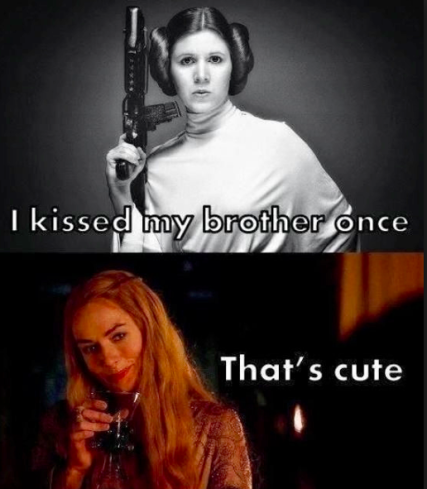
Game of Thrones is all about this. In one episode we are screaming at the television wanting X character to die and the next episode we are rooting for that same character to win. Cersei Lannister is a terrible, horrible, awful and probably irredeemable character…but she does what she does because she is a mother and will do ANYTHING for her children.
And frankly, you know you cheered when she leveled half the city and took out the High Sparrow in last season’s finale.
In Breaking Bad, Walter White doesn’t one day go, “You know what? I am going to enter the world of crime!” No he is a struggling high school chemistry teacher who takes to making and selling meth in order to secure his family’s financial future when he finds out he has terminal cancer. Do we agree with his decisions? Probably not, but they make for fascinating film.
Never Write for the Market
I hear this all the time and, my POV? It is terrible advice. Or at the least incomplete advice. If you are only writing about vampires because vampires are selling and frankly you hate supernatural stories and really want to write cupcake bakery mysteries? Then don’t write vampires. It isn’t your passion and that will show through and make for a blah book (and then forget about film optioning).
But then I also see the converse side of this where writers are writing what THEY love…and only entertaining themselves. They aren’t reaching out and serving the audience and so we just feel like unwanted guests on this writer’s personal holodeck.
Remember we (writers) are in the entertainment business. Business is the other half of that word and business is about supply and demand and we are wise to study what is in demand and give it to them.
And there is no reason we can’t get super creative on this. The same but different. Offer up something audiences didn’t know they wanted until they saw it. But even in those cases? If we look, the hallmarks of great story were still there. Writing a novel in second person is just being pretentious. Writing a fantasy series with a young boy as the protagonist (Harry Potter)? That is genuine risk-taking.
What are your thoughts? What are some of the best risks you have seen filmmakers take on? What were some one that fell flat?
I love hearing from you!
And to prove it and show my love, for the month of NOVEMBER, everyone who leaves a comment I will put your name in a hat. If you comment and link back to my blog on your blog, you get your name in the hat twice. What do you win? The unvarnished truth from yours truly.
TREAT YOURSELF!!!! Check out the Upcoming Classes
Remember that ALL CLASSES come with a FREE RECORDING so you can listen over and over. So even if you can’t make it because the holidays are crazy? No excuses! Take time to be good to yourself! All you need is an internet connection!
How to Get Your Book Made Into Film
Class Title: How to Get Your Book Made Into Film
Instructor: Writer/Producer Joel Eisenberg
Price: $45 USD Standard
Where: W.A.N.A. Digital Classroom
When: WEDNESDAY November 30th, 2016 1:00 PM E.S.T. to 3:00 P.M. EST
How do you cull the essence of your novel into a feature film? How do you expand your short story for a television series? Finally, when the written adaptation is complete, how do you navigate the Hollywood maze for real money and credits?
Joel Eisenberg has been there. As an independent producer of over 20 years, Joel has developed content or sold projects to networks such as TNT, CBS-Decades, FOX Studios, Ovation TV and more. As the former head of EMO Films at Paramount Studios, Joel is also a professional networker, having hosted entertainment network events at the Paramount lot, as well as Warner Brothers, Sunset-Gower Studios and more. His work has been featured in many media outlets, including CNN, The Wall Street Journal, The New York Times, NBC, The Los Angeles Times, TV Guide and even Fangoria.
Important Class for After NaNoWriMo! You might have a New Year’s Resolution to query a novel. Doesn’t matter. Treat yourself to an early Christmas present!
Pitch Perfect—How to Write a Query Letter & Synopsis that SELLS
Class Title: Pitch Perfect—How To Write a Query Letter & Synopsis that SELLS
Instructor: Kristen Lamb
Price: $45 USD Standard
Where: W.A.N.A. Digital Classroom
When: FRIDAY December 2nd, 2015 7:00 PM E.S.T. to 9:00 P.M. EST
You’ve written a novel and now are faced with the two most terrifying challenges all writers face. The query and the synopsis.
Query letters can be daunting. How do you sell yourself? Your work? How can you stand apart without including glitter in your letter?
***NOTE: DO NOT PUT GLITTER IN YOUR QUERY.
Good question. We will cover that and more!
But sometimes the query is not enough.
Most writers would rather cut their wrists with a spork than be forced to write the dreaded…synopsis. Yet, this is a valuable skills all writers should learn. Synopses are often requested by agents and editors and it is tough not to feel the need to include every last little detail. Synopses are great for not only keeping your writing on track, but also for pitching your next book and your next to that agent of your choice.
This class will help you learn the fundamentals of writing a query letter and a synopsis. What you must include and what doesn’t belong.
So make your writing pitch perfect with these two skills!
Plotting for Dummies
Class Title: Plotting for Dummies
Instructor: Kristen Lamb
Price: $35 USD Standard
Where: W.A.N.A. Digital Classroom
When: SATURDAY December 3rd, 2016 2:30 PM E.S.T. to 4:30 P.M. EST
Are you tired of starting book after book only to lose steam and be unable to finish? Do you finish, but then keep getting rejected? Do you finish, but it takes an ungodly amount of time? Sure, great you land an agent for your book, but you don’t have FIVE YEARS to write the next one?
This class is here to help. The writers who are making an excellent income are not doing it off ONE book, rather they are harnessing the power of compounded sales. This class is designed to help you learn to plot leaner, meaner, faster and cleaner (even for PANTSERS!)
Learn the basic elements of plot, various plotting techniques, how to test your seed idea to see if it is even strong enough to be a novel and MORE!
Blogging for Authors
Class Title: Blogging for Authors
Instructor: Kristen Lamb
Price: $50 USD Standard
Where: W.A.N.A. Digital Classroom
When: FRIDAY December 9th, 7:00 PM E.S.T. to 9:00 P.M. EST
Blogging is one of the most powerful forms of social media. Twitter could flitter and Facebook could fold but the blog will remain so long as we have an Internet. The blog has been going strong since the 90s and it’s one of the best ways to establish a brand and then harness the power of that brand to drive book sales.
The best part is, done properly, a blog plays to a writer’s strengths. Writers write.
The problem is too many writers don’t approach a blog properly and make all kinds of mistakes that eventually lead to blog abandonment. Many authors fail to understand that bloggers and author bloggers are two completely different creatures.
This class is going to cover:
How author blogs work. What’s the difference in a regular blog and an author blog?
What are the biggest mistakes/wastes of time?
How can you effectively harness the power of algorithms (no computer science degree required)?
What do you blog about? What topics will engage readers and help create a following?
How can you harness your author voice using a blog?
How can a blog can help you write leaner, meaner, faster and cleaner?
How do you keep energized years into your blogging journey?
How can a blog help you sell more books?
How can you cultivate a fan base of people who love your genre?
Blogging doesn’t have to be hard. This class will help you simplify your blog and make it one of the most enjoyable aspects of your writing career.
For those who need help building a platform and keeping it SIMPLE, pick up a copy of my latest social media/branding book Rise of the Machines—Human Authors in a Digital World on AMAZON, iBooks, or Nook.


November 11, 2016
Your Novel as a MOVIE? Not as Far-Fetched as One Might Imagine

Last week when I was in Los Angeles I had the great pleasure of meeting with a long-time friend and supporter of mine, Hollywood producer and he taught a fantastic class at the Writers’ Digest Conference about how to get your book made into film, whether on TV or the big screen. I begged him to teach that same class to you guys and since he is kind and generous and an all-round amazing human being, he agreed.
So why is it that I stalked a Hollywood producer to teach this class? Because we are in exciting times to be a writer.
I like making industry predictions and thus far I have been pretty spot on and I hope that’s the case here, too. Technology has completely altered our world. We have not seen such drastic change in human civilization since the invention of the Gutenberg Press. Technology has plowed over the old and ushered in something entirely new.
We’ve seen the fall of traditional media and the rise of on-line media. Instead of people reading the newspaper in the morning, they scroll their news feeds on social media outlets. They go to their favorite blogs.
Instead of a handful of fashion elites being able to pick and cultivate the next Super Model, fashion is becoming far more democratic. Instagram is producing our cover models, not modeling agencies. Women are flocking to blogs and Instagram and Pinterest for beauty and fashion instead of the glossy magazines they once subscribed to.
We’ve seen the Big Six dwindle to the less impressive Big Five. Borders is dead and Barnes & Noble isn’t far behind. Even if B & N doesn’t go under, they certainly aren’t crouching on every corner like they used to. This means physical point of sales locations are fewer than ever before (though I wouldn’t fret because I think the bookstore will come back in a big way, just reinvented).
A large part of why NY has suffered is they forgot they were in the story and information business, not the paper business. They needed to cater to readers (consumers) not distributors. Amazon understood that and it’s why they’ve become a juggernaut. Strangely? The same phenomenon is happening on the opposite coast…
Hollywood is Next
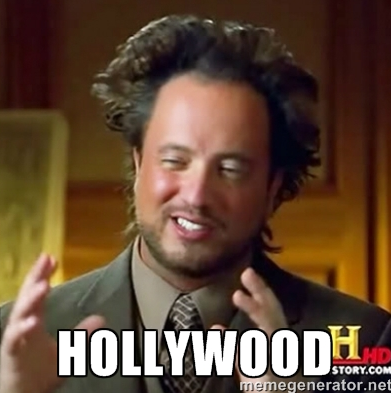
I actually saw the beginnings of this about two years ago when Amazon produced the original series Bosch (based off Michael Connelly’s series about Detective Harry Bosch).
Realize, this isn’t thirty years ago where equipment and technology was so cost-prohibitive only a handful of mega-funded-few could be in the game. Technology has evened the production playing field (which is precisely what happened in publishing). Additionally, a handful of conglomerates no longer hold the monopoly on distribution (again, what happened in publishing).
But beyond this…
Hollywood has been doing a lot of what NY has been doing and for much the same reason. They have overhead. They have a lot of people on the payroll who won’t work for compliments and glitter. They have to make a profit and the best way to make a profit is to figure out what sells. How do they figure out what will sell? They look at what has already SOLD and then try to make an educated guess.
It isn’t personal. It’s a business.
The Michael Bay Effect
Hollywood makes most of its money off the first week a movie is released and off audiences then BUYING that movie and merchandising, etc. The problem is, that the audiences that watch the most movies, who are most likely to go to a movie over and over and over and then download that movie are young males.
This is how we have Transformers IX and Smurfs V.
This is what happens when Michael Bay gets a hold of stories and yes I am going to hell and you are too because you laughed
November 7, 2016
Slave to Perfection & The Dangers of Comparing Ourselves with Others

Last night I watched the movie Bad Moms and it was a great movie. Brain candy. A lot of laughs. Nothing too deep…well, maybe a little deep. One of the areas the movie explored is how in this age we are all killing ourselves to reach some unreachable Photoshopped standard. The New Yorker even did a post called How Facebook Makes Us Unhappy which highlighted the growing problem of social comparison.
And I will admit that even I have to be careful. It is tough not to compare my size 12 middle-aged body to my friends who had a baby and instantly went back to a Size 2. It’s tough when I see pictures of a friend’s house and it looks like a Good Housekeeping spread and mine is covered in Cheeze-Its and a sticky film we have yet to explain.
I have elves.
But instead of Overly Responsible Greatest Generation Ever Elves the shoemaker got, I got the Bratty Entitled Millennial Elves who just want to watch streaming video when they aren’t making nachos or tipping over my neatly stacked towels…and wiping their sour cream covered hands on them.
Seriously, It is RIDICULOUS
I live in an apron. Even sitting at the computer. I write for an hour then get up and stretch by tidying. My mom even picked on me and said I had to make sure to never take off my apron because she might not recognize me.
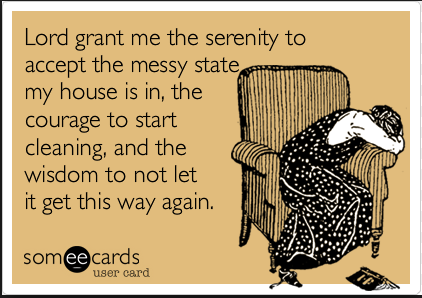
ME, every frigging Monday.
And yet my home is so, so far from those pictured in Pinterest.
How I long to have a master bedroom that is a sanctuary (a.k.a. an “adult” bedroom). You know, the kind of room with blown glass vases of peonies and carefully arranged stacks of books that make me look super smart. Stuff that won the Pulitzer but in reality put me to sleep by page three.
My sheets are stuffed with crumbs and Legos and a dog that get’s super pissy when you try to make the bed.
I went on an organizing spree a year ago and found one of those doo-dads that hangs in your closets, like soft shelves (a.k.a. Poor Man’s California Closet). Anyway, I neatly folded all the scarves that had been taking up so much room in my dresser.
GO ME! I look like a real adult!
Until the cat climbed it, tossed the scarves on the floor (except the ones he kept for his new nest).
Shoot…me…now.
I don’t know. I remember being young and blaming all of this on being young. When I grew up, this would all be different and I would have my $#!& together but the hard truth is I think I very briefly did get my $#!& together back some time in 2011 then put it in a place I would remember where I put it…and now I can’t find it.
I struggle every day to recognize when I am being a lunatic. I only have so much to give and I need to be mindful where I put my energy because “Perfect” is the enemy of the good. “Perfect” will bash your self-esteem, wreck your relationships, and kill your dreams. No one can live up to perfect. And when we are trying to live up to perfect we are being crazy and us being crazy makes everyone around us a little crazy too.
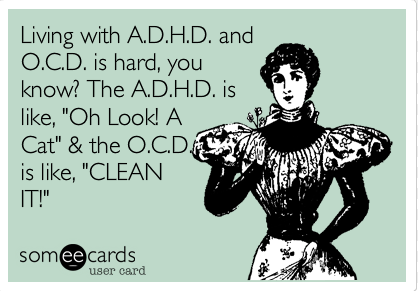
“Perfect” is an especially dangerous enemy these days in an era where we can use filters and tools to make life rose-colored all the time. That perfectly staged picture of a friend’s new living room set that makes your guts twist? Just be happy for her and secretly know that she probably screamed at all her kids to throw the laundry that had been on the couch for six days into the tub so she could get a picture…then used the Lo-Fi filter for extra pizazz (and to blur that weird stain that smells like chili into retro shadow).
#MyLifeSucksAndINeedLikesOnThisPicSoIDoNotBreakDown
I think that sometimes, if we back away and look at WHY many people are posting this stuff, it makes sense to lighten up on ourselves. We live in a world that expects us to be adults (Sucks, right? I know). But often the problem with being an adult is that somewhere people stopped believing we needed compliments and affirmation.
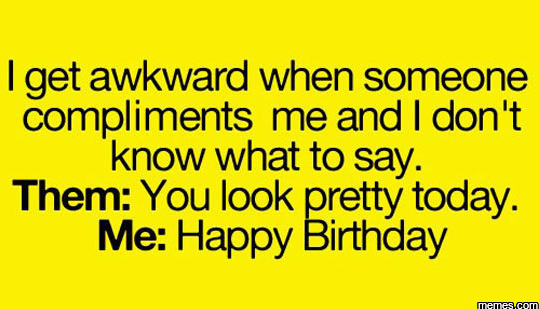
If we do a great job at work, who cares? We are being paid. Our paycheck is supposed to be enough. We didn’t fire you, right?
If the house is clean when our family gets home? There’s not a treat basket we get to reach in and get a cool unicorn pencil or kissing lips eraser and that is fundamentally WRONG.
#IWantPuffyStickers
My husband loves me whether I wear the same pair of pajamas for five days straight because it is NaNo or whether I dress up and often? He doesn’t even recognize the difference.
So if I hope to hear, “You look fantastic!” with any kind of enthusiasm? Yep. Facebook.
No one gives me a sticker that reads, “Your Kid is Alive Another Day! YOU ROCK!” or “You Remembered to Pay the Water BEFORE the City Turned It Off! GO YOU!”
And it can get really discouraging sometimes.
The same can happen in the world of writing.
Don’t compare your everyday life with another author’s “highlight reel.”
I read a crazy amount of books and it’s so easy to get discouraged with the What was I thinking? I suuuuck. I can’t wriiiiiite. But here is the deal, I am not downloading Michael Connelly’s first draft-as-audio-book onto my phone. I am listening to a finished product.
Even if our final draft isn’t as good as INSERT HERO AUTHOR HERE’s work, remember they probably didn’t start out writing that way. They had a learning curve too. Stephen King started writing as a kid. He’d written millions of words and countless stories before Carrie ever came along. Dean Koontz wrote under a pseudonym for years, books that for a long time he really didn’t even like laying claim to.
Natural talent is like a diamond. Found in the natural it looks like a hunk of glass. It takes a lot of chipping away and cutting and polishing before it is seen as anything of value.
So if you are doing NaNoWriMo, fantastic! But perfect is the enemy of the good. Many won’t finish because they just won’t frigging lighten up on themselves. Yes, the house will probably be messy and the kids sticky and wear shoes because I guarantee the cat will puke (in the middle of the night because cats cannot puke in sunlight or on anything but carpet).
Remember that anything on Facebook is often a “highlight reel” because we live in a world where we feel stretched thinner and thinner and often we feel invisible. We sometimes just need that GO YOU! And if we can see that is often what others are needing, then it is easier to stop comparing ourselves because we fed our kid Quick Trip donuts for breakfast instead of a gluten-free dairy-free fritatta with pine nuts off a recipe we saved on Pinterest.
So lighten up. Breathe. Have fun and give yourself a compliment today. Give someone else a compliment. Heck we all need it. In fact, here is a song to remind you…
What are your thoughts? Do you find yourself goofing off too much on social media because you really feel down and just need some affirmation? I do, too. We just need to make sure the short-term thrill isn’t stealing a long-term dream with longer-lasting rewards.
Do you feel burned out and stressed out and you deep down know you are doing it to yourself? That you are being ridiculous? Do you struggle with comparing yourself to your author heroes? Do you find yourself in the habit of perfectionism? Are you like me and harder on yourself than you are on others (which is no great prize because you are just a meth-fueled lunatic with yourself)?
I love hearing from you!
And to prove it and show my love, for the month of NOVEMBER, everyone who leaves a comment I will put your name in a hat. If you comment and link back to my blog on your blog, you get your name in the hat twice. What do you win? The unvarnished truth from yours truly.
TREAT YOURSELF!!!! Check out the Upcoming Classes
Remember that ALL CLASSES come with a FREE RECORDING so you can listen over and over. So even if you can’t make it because the holidays are crazy? No excuses! Take time to be good to yourself!
Important Class for After NaNoWriMo! You might have a New Year’s Resolution to query a novel. Doesn’t matter. Treat yourself to an early Christmas present!
Pitch Perfect—How to Write a Query Letter & Synopsis that SELLS
Class Title: Pitch Perfect—How To Write a Query Letter & Synopsis that SELLS
Instructor: Kristen Lamb
Price: $45 USD Standard
Where: W.A.N.A. Digital Classroom
When: FRIDAY December 2nd, 2015 7:00 PM E.S.T. to 9:00 P.M. EST
You’ve written a novel and now are faced with the two most terrifying challenges all writers face. The query and the synopsis.
Query letters can be daunting. How do you sell yourself? Your work? How can you stand apart without including glitter in your letter?
***NOTE: DO NOT PUT GLITTER IN YOUR QUERY.
Good question. We will cover that and more!
But sometimes the query is not enough.
Most writers would rather cut their wrists with a spork than be forced to write the dreaded…synopsis. Yet, this is a valuable skills all writers should learn. Synopses are often requested by agents and editors and it is tough not to feel the need to include every last little detail. Synopses are great for not only keeping your writing on track, but also for pitching your next book and your next to that agent of your choice.
This class will help you learn the fundamentals of writing a query letter and a synopsis. What you must include and what doesn’t belong.
So make your writing pitch perfect with these two skills!
Plotting for Dummies
Class Title: Plotting for Dummies
Instructor: Kristen Lamb
Price: $35 USD Standard
Where: W.A.N.A. Digital Classroom
When: SATURDAY December 3rd, 2016 2:30 PM E.S.T. to 4:30 P.M. EST
Are you tired of starting book after book only to lose steam and be unable to finish? Do you finish, but then keep getting rejected? Do you finish, but it takes an ungodly amount of time? Sure, great you land an agent for your book, but you don’t have FIVE YEARS to write the next one?
This class is here to help. The writers who are making an excellent income are not doing it off ONE book, rather they are harnessing the power of compounded sales. This class is designed to help you learn to plot leaner, meaner, faster and cleaner (even for PANTSERS!)
Learn the basic elements of plot, various plotting techniques, how to test your seed idea to see if it is even strong enough to be a novel and MORE!
Blogging for Authors
Class Title: Blogging for Authors
Instructor: Kristen Lamb
Price: $50 USD Standard
Where: W.A.N.A. Digital Classroom
When: FRIDAY December 9th, 7:00 PM E.S.T. to 9:00 P.M. EST
Blogging is one of the most powerful forms of social media. Twitter could flitter and Facebook could fold but the blog will remain so long as we have an Internet. The blog has been going strong since the 90s and it’s one of the best ways to establish a brand and then harness the power of that brand to drive book sales.
The best part is, done properly, a blog plays to a writer’s strengths. Writers write.
The problem is too many writers don’t approach a blog properly and make all kinds of mistakes that eventually lead to blog abandonment. Many authors fail to understand that bloggers and author bloggers are two completely different creatures.
This class is going to cover:
How author blogs work. What’s the difference in a regular blog and an author blog?
What are the biggest mistakes/wastes of time?
How can you effectively harness the power of algorithms (no computer science degree required)?
What do you blog about? What topics will engage readers and help create a following?
How can you harness your author voice using a blog?
How can a blog can help you write leaner, meaner, faster and cleaner?
How do you keep energized years into your blogging journey?
How can a blog help you sell more books?
How can you cultivate a fan base of people who love your genre?
Blogging doesn’t have to be hard. This class will help you simplify your blog and make it one of the most enjoyable aspects of your writing career.
For those who need help building a platform and keeping it SIMPLE, pick up a copy of my latest social media/branding book Rise of the Machines—Human Authors in a Digital World on AMAZON, iBooks, or Nook.


November 4, 2016
How to Write Endings that “Wow!”

Once again, I invited blogger and copywriter Alex Limberg to spread his nuggets of wisdom amongst us. Today, he is closing in on closings. He is showing us several “typical closing styles” you can use as templates for your own stories. Yes, just rip them off mercilessly. Alex brings in a few famous authors like Agatha Christie, George Orwell and Bret Easton Ellis, so you can see one brilliant practical example for each closing. Make sure to download Alex’s free checklist of “44 Key Questions” to make your own stories awesome. And here is the beginning of the end…:
The beginning, so they say, is the most important part of your story. And that might very well be true. Or how do you think your reader will get to experience your genius climax, if a sleep-inducing beginning has put her into a coma long ago…?
However, the end is what your readers will take with them from your book. It’s your closing argument and the last thing they read. It’s what they will remember when they think back to your story in a couple of years, if they remember anything at all.
So you better make your ending count.
Story endings also have some special kind of magic to them. That feeling when you finish a great book you really enjoy, isn’t it… epicness? A grand feeling that stays with you for a while?
Here is the good news: A story ending to remember isn’t even that hard to write. You will now see five typical endings that will leave your reader in delight. Authors use these five endings all the time, and that’s because they work really well.
If all else fails, just use these examples as templates for your own story. That’s not very creative, but no harm done.
Also, if you want to thoroughly check your plot structures, including beginnings and endings, characters, dialogues, and much more, you can download my free checklist about “44 Key Questions” to test your story. It will help you make every part of your story tight and awesome.
Here are five archetypical closures that work astonishingly well, with one famous example for each:
1. Get Them by Surprise
Surprise works every single time. That’s because us humans are just curious creatures. You could uncover a surprising fact or give the action a surprising twist. Anyways, your readers will appreciate being astonished; after all, that’s what they are reading stories for.
Your readers will have certain expectations. They depend on the genre, the protagonists, the language, and so on… Be aware of your readers’ expectations. Put yourself in their shoes. Then give them something they don’t expect, but still makes sense for your story.
Maybe the thief turns out to be the narrator’s own husband or even the narrator herself. Maybe the girl doesn’t pick between her two suitors, but instead marries their uncle. Or plumber.
Agatha Christie, the master of plausible surprise, shows us perfectly how it’s done in And Then There Were None. Ten visitors are trapped on a small island and murdered one by one. As nobody else is on the island, it’s clear one of them must be the murderer… but who?
One suspect after another is snuffed, until only one person is left alive. It’s now clear she must be the murderer, until… the highly unexpected closure reveals she is not. The novel ranks amongst the bestselling books of all time.

2. Play Their Sentiments with an Elegiac Fade Out
Milan Kundera takes a very different approach when he wraps up his The Unbearable Lightness of Being: “Up out of the lampshade, startled by the overhead light, flew a large nocturnal butterfly that began circling the room. The strains of the piano and violin rose up weakly from below.”
Kundera’s classic novel fades into the distance like a piece of music. The ending doesn’t want to bring suspense, puzzle or get you to think. It’s all about mood. It’s a slow ending.
Try to make your reader really feel the power of the moment, be it terrified, happy, sad, or sentimental.
Think of little symbols, like the butterfly above; with Kundera, it might stand for lightness, repeating the theme in the novel’s title. You could zoom in on a tapping finger or a dew drop, or zoom out to show wooded hills or a rural mansion. Landscapes and weather make very memorable finishing moments (“…and great shaggy flakes of snow began to fall.”).
Leave the reader with a unique vibe, and she will appreciate it. Sometimes, it’s all your closure needs.
3. Throw Them a Punchline
With this one, you have to be careful. Do you know that situation when Uncle Albert at the holiday lunch table makes a big fuss about his upcoming joke, but the punchline is almost non-existent? You don’t want to be like that. You could tell a joke or describe surprising action, but make it count.
Your punchline doesn’t have to be funny. It could be an action or a simple observation. In any case, it should connect to the stories topic, even if it’s just a symbolic hint. Otherwise it will be up in the air and look arbitrary.
George Orwell’s novel Animal Farm is one big parable on how totalitarian systems arise and thrive. It’s told in an animal world. Look at the clever, indirect and also depicting note Orwell ends on:
“The creatures outside looked from pig to man, and from man to pig, and from pig to man again; but already it was impossible to say which was which.”

4. Leave Open Questions and Create Suspense
If you want to tickle your reader with suspense, cue an open ending: Ok, the Apaches are defeated, but will they be back again? Got it, the starship has escaped the pudding-like aliens, but will it ever make its way home to planet earth?
These kind of endings will keep your readers on their toes and make them long for more. But be aware that they can also be very unsatisfying. After all, your reader bought your book so he can hear from you what happened. “Just imagine the rest yourself,” can be a little unsatisfactory. But if you have delivered a great deal of action beforehand and if the question is rather vague, it might be worth it.
Let’s showcase another one of the most successful novels of all time, Margaret Mitchell’s Gone with the Wind. It ends with Scarlett O’Hara longing to be together with Rhett Butler again – but can she? Also pay attention to the nice rhythm that keeps these phrases flowing: “I’ll think of it all tomorrow, at Tara. I can stand it then. Tomorrow, I’ll think of some way to get him back. After all, tomorrow is another day.”
5. Repeat the Theme of the Opening Scene
Whatever your story is about, it probably circles around one specific topic: Be it the struggles of love, the rewards of honesty, or whatever else. It’s what keeps your readers breathless throughout the story. Now give them one last reminder of what they came for, one condensed moment of your topic, a big final exclamation mark!
You have many options to repeat your main theme in the closure. Think of people, actions, details.
Maybe your story is about the importance of friendship, and you wrap up with one friend putting a patch on the other friend’s abrasion. Or you end on one friend smilingly watching the other friend’s bag while she is away. Or a close up on the yin and yang badge on that very bag. It might be very simple, but it automatically gains meaning because it’s the last part.
Bret Easton Ellis’ nihilistic novel American Psycho starts by describing a graffiti with the text “Abandon all hope ye who enter here.”
The novel fittingly ends with a nihilistic paragraph as well. Large parts of the following text read arbitrary in content and form. In the end the very last words of the novel spell it out clearly: NOT AN EXIT.
“[…]this is, uh, how life presents itself in a bar or in a club in New York, maybe anywhere, at the end of the century and how people, you know, me, behave, and this is what being Patrick means to me, I guess, so, well, yup, uh…” and this is followed by a sigh, then a slight shrug and another sigh, and above one of the doors covered by red velvet drapes in Harry’s is a sign and on the sign in letters that match the drapes’ color are the words THIS IS NOT AN EXIT.”
You can end your stories in an infinite number of ways, but these five closings will intrigue your readers, no matter what. They will evoke joy, melancholy, surprise and other powerful feelings in your audience, and your readers will remember how they felt about your story for a long, long time to come.

Alex Limberg is blogging on ‘Ride the Pen’ to help you boost your fiction writing. His blog dissects famous authors (works, not bodies). Test your endings, beginnings, plot, characters and much more with his free checklist of “44 Key Questions” to make your story awesome. Shakespeare is jealous. Alex has worked as a copywriter and lived in Vienna, Los Angeles, Madrid and Hamburg.
Finished with your endings, Alex?
Kristen here. Now tell me: Have you used one of these five endings before? Which one of them is your favorite? Is there one you specifically like or dislike as a reader? How come even endings have beginnings? And why are sausages the only things with two endings?
Remember that comments for guests get double love from me for my contest!
I love hearing from you!
To prove it and show my love, for the month of NOVEMBER, everyone who leaves a comment I will put your name in a hat. If you comment and link back to my blog on your blog, you get your name in the hat twice. What do you win? The unvarnished truth from yours truly. I will pick a winner once a month and it will be a critique of the first 20 pages of your novel, or your query letter, or your synopsis (5 pages or less).
For those who need help building a platform and keeping it SIMPLE, pick up a copy of my latest social media/branding book Rise of the Machines—Human Authors in a Digital World on AMAZON, iBooks, or Nook.


November 1, 2016
Want to GO PRO? 10 Ways to Own NaNo (And the Other 11 Months, Too)

Today we launch NaNoWriMo (National Novel Writing Month). This challenge is to see if we can write 50,000 words in a month. Though 50,000 words is not quite a novel, it IS a professional pace and for those who are new? This is probably going to feel like running a marathon the day after making a resolution to actually use that gym membership. It will push you.
Whether or not you are doing NaNo, these tips will help you go pro because for the pros? Every month is NaNoWriMo.
Most of us are going to have to work a day job and write. We also have a family and like me, you probably have spoiled them by actually feeding them every day. The world is not going to pause because we are writing a book.
Other writers frequently ask how I somehow manage to get a lot of stuff done, despite my having the attention span of a fruit fly…with a bad crack habit. Here are 10 ways to help you be productive even if OOH! SHINY!
…even if you tend to be a tad majorly ADD. The following tips are what help ME stay focused. I am NOT a doctor or psychologist or ADD expert. I’m a Jedi master, warp engine inspector, and WRITER so you get what you get.
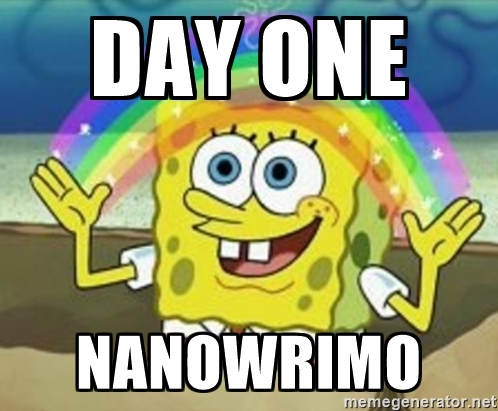
1. Make lists.
I get distracted easily, so a list reminds me of what I need to get accomplished. I make separate lists—housework, fiction, non-fiction, business stuff, global domination using sea monkeys. Then, once I have the list, I do the hardest thing on my writing and business lists FIRST (housework can WAIT).
Like Covey says…
Never mistake the urgent for the important.
Do that NaNo word count right away. Just get it DONE.
2. Understand that feelings are pathological liars.
Writing is a profession, not a playpen.
Professionals ignore their feelings and do it anyway. Only children, amateurs and spirit mediums listen to their feelings. Feelings are fickle, lazy, and secretly jealous of your work and a tad pissed that you no longer hang out with them as much as you used to. The secret to success is to work your tail off. Be willing get up earlier and stay up later than others. Be willing to do what others won’t.
But I wanna write books. I don’t wanna do social media, toooooo. It’s haaaaard.
Yes. It is. There are many reasons this profession is not for everyone.
3. Use The Force…of Self-Discipline
Who cares HOW you get things done, so long as they get done?
I use the “Swiss Cheese” approach. I have my list and I take bite after bite after bite until the work is finished. Every book can be written in 250, 500, or 1,000 word bites. I CANNOT work linearly, so I don’t try and yes I was always in trouble in school but public schools were designed to train factory workers and corporate mind slaves, not people who get paid to play with imaginary friends.
4. Mix it up.
I am a writer, wife, entrepreneur, teacher, and mom who has yet to make enough money to afford servants (which sucks), and cats make lousy slaves. This means I get to do most of the cooking, cleaning, laundry and housework. Write your 200 words, fold a load of whites, empty the dishwasher, then write another 200 words.
I LOVE audio books. I can always tell writers who don’t read. Want to be a great author? Read as much as humanly possible. I listen to audio books while doing housework. It makes the dishes go faster and hones my skills.
And I don’t want to hear, Oh well when I am writing I don’t like to read because that author’s voice will bleed over into my work.
All I have to say about that is If only you could be that frigging lucky!
Yes, please let Gillian Flynn infiltrate and hijack my work. Like NOW!
5. Suck it up, Buttercup.
Understand that sometimes we will have to sit for a long time and focus. It’s hard. Whaaaaaaahhhhh, but anyone who thinks being a writer is a fluffy hamster dream has been hanging out with their feelings…and feelings lie, sabotage and will talk you into living on ice cream and cookie sprinkles.
6. Make mean writer friends.
Yes, the Swiss Cheese approach works well for people with ADD, and yes, there are times we need to duct tape our a$$es to the chair. This is why I befriend really mean people who kinda scare me. On the surface my friends are funny and sweet and would do anything for a friend…but that’s the issue. They will do anything for a friend, including ordering a hit on my television.
Come hang out on WANATribe. It is a Ning I created just for writers and guess what? It is all writing all the time and no one spams or trolls or talks about the election because I am a loving but vengeful god and will smite them. So if you need to escape Facebook and find those mean friends? We are there. We have been doing sprints in the Main Room IM for A YEAR.
I kick your @$$ every day free of charge.
You’re welcome.
*polishes riding crop*
7. Ditch loser friends.
We all have them or have had them. People who like to complain, make excuses, indulge in their feelings all the time.
Ditch writers (and other people) who believe in luck, not work. Laziness, apathy, and whining are contagious. Treat excuses like EBOLA. A friend coughs blood excuses all over you, and, within two to three days, you start coughing up blood excuses, too…until your dream of being a writer liquifies and bleeds out and I hope you’re happy with yourself.
Killer.
8. Forget perfection.
Perfection is an urban legend, started by Feelings (because Feelings are a needy boyfriend/girlfriend who don’t understand the world does not revolve around them.)
The world doesn’t reward perfection; it rewards finishers.
This is the big lesson NaNo is really trying to teach you. Often we lose focus on what we are REALLY doing, because we are getting sidetracked with nitpicking. Guess what, no half-finished novel ever became a runaway best-seller…but more than a few crappy-but-finished ones have.
9. Exercise.
Often ADD can be fueled by being too sedentary. Human bodies were not designed to sit on their @$$e$ all day. Ever have a puppy that chews everything and is into everything and short of strapping itself to a rocket is just being a GIANT PAIN IN THE @$$?
How do you get it to behave? Put on roller blades and run puppy until puppy wants to slip into something more comfortable…like a coma. ADD people are human puppies, so stop piddling on the carpet…I mean, go get a little exercise and your focus will generally improve.
Again, I strongly recommend audio books. I walk every day and I have made my way through a large chunk of the NYTBS list.
10. Drink lots of water.
Human bodies are a hydroelectric system, and water enhances conductivity. Cool writer ideas/thoughts work this way. Muse Pixies of Awesomeness are conducted through your brain to your fingers and they bring the cool story stuff. MPAs like to travel via fairy, or ferry on WATER. They can’t travel if the waterways are too dry and moor them on a cookie sprinkle…and then you can’t focus.
It’s science. Don’t argue.
I hope these tips help, because finishing NaNo is no easy task. In fact, I am about to get to MY word count for the day and yes I am over on WANATribe. Again, if you NEED help and accountability I am there five days a week no matter what so no excuses. Last year everyone who sprinted finished Nano in record time…because they had to keep up with me (I finished in 11 days). If you want to really experience the professional pace, come join me.
Those of you ADD folk out there who’ve paid attention to this point, first of all, CONGRATULATIONS!!!
…now back in your hole.
It writes the words or it gets the hose[image error].
What are your thoughts? Struggles? Tips? Words of wisdom. It’s okay. You have permission to get back in your hole after you comment
October 26, 2016
13 Reasons Authors are Mistaken for Serial Killers
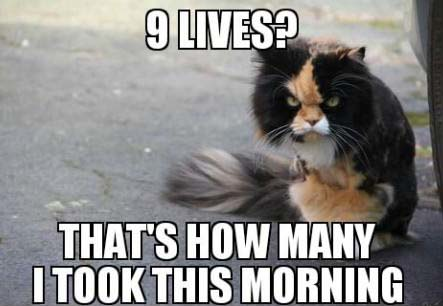
Today’s post is a repeat because I am scrambling to get ready to fly to L.A. for the Writers’ Digest Conference, but I think this is a truly fun post that is perfect for Halloween and also get get you guys fired up for NaNoWriMo. Writers really are a strange breed and just so y’all know? The normal ship sailed without you a long time ago so relax. Your family or friends might not “get” you but we do.
I love being a writer. It’s a world like no other and it’s interesting how non-writers are simultaneously fascinated and terrified of us. While on the surface, people seem to think that what we do is easy, deep down? There is a part that knows they’re wrong. That being a writer, a good writer, is a very dark place most fear to tread.
In fact, I think somewhere at the BAU, there’s a caveat somewhere. If you think you profiled a serial killer, double check to make sure you didn’t just find an author.
Hint: Check for empty Starbuck’s cups.
Writers, if you are NOT on a government watch list? You’re doing it wrong.
Seriously. I once spent an entire afternoon googling Fort Worth hotels to find the right one with a balcony to toss someone off of. I was like the Goldilocks of murder.
Nope doesn’t face a street.
Not high enough to be fatal.
Don’t want them landing in a pool.
Apparently “normal” people do not do this, which is why being normal is totally boring and for losers.
So before friends and family turn you into the FBI, here is a handy list of ways we writers are often mistaken for serial killers.
#1 Serial Killers Writers Need Alone Time
Generally, dealing with the public is only for a purpose (like making others think we are normal). To truly recharge and immerse in the art of what we do, we need to pull back and simply “get away.” Many writers can be found in basements, dark corners of libraries or lurking behind a desk surrounded with bear traps.
#2 Serial Killers Writers Often Hold Down a “Normal” Job
Many writers are also teachers, engineers (or likely married to an engineer—What is WITH that?), lawyers, doctors, or even librarians. We are friendly, polite and on-time and hold down gainful employment. This is what makes writers SO terrifying. You probably work with one.
You might even be married to one.
#3 Serial Killers Writers Can Look Just like YOU
When our book comes out, neighbors will say, “But she seemed so nice and normal. Really polite. Always thought something was off, but writing? Really? Who can ever know these things.”
#4 Serial Killers Writers Understand Law Enforcement
And probably dated it
October 21, 2016
How Horror Fiction Can Make Us Better Writers

Image via Flickr Creative Commons, courtesy of Frederik Andreasson
Since we are coming up on Halloween, I’d like to take a moment to talk about my favorite genre—horror. I can’t get enough of it. It is a genre that fascinates me simply because I believe it is the most difficult genre to write. Sure it was probably easier back in the days that movie audiences ran screaming from the man in a really bad plastic ant outfit. But these days? As desensitized as we have become? Unsettling people is no simple task.
That’s why I’d like to talk about it today because no matter what type of fiction we write, we can learn a lot from what horror authors do well.
Powerful fiction mines the darkest, deepest, grittiest areas of the soul. GREAT fiction holds a mirror to man and society and offers messages that go beyond the plot.
Elisabeth Kubler Ros once stated:
There are only two emotions: love and fear. All positive emotions come from love, all negative emotions from fear. From love flows happiness, contentment, peace, and joy. From fear comes anger, hate, anxiety and guilt. It’s true that there are only two primary emotions, love and fear. But it’s more accurate to say that there is only love or fear, for we cannot feel these two emotions together, at exactly the same time. They’re opposites. If we’re in fear, we are not in a place of love. When we’re in a place of love, we cannot be in a place of fear.
This means, the more we understand fear, the deeper our writing becomes, the more meaningful, visceral, and profound. In love stories, fear might be of being alone, of never finding “the one” or even losing “the one.” In a literary, the fear can be of remaining the same, or of regressing, or of failing to evolve and learn the critical lesson provided by the story problem.
Fear is the lifeblood of fiction because conflict is always generated by fear. The protagonist wants something BUT THEN… The more intense the fear? The higher the stakes become? The faster the reader turns the pages.
What Horror Says About Conflict

Here is where we need to be careful. There is a fine line between a bad situation versus authentic conflict. This line makes the difference between a meh novel and something people hold onto and read and reread. It is what makes the difference between a B horror movie that is utterly forgettable, versus a horror staple that endures for generations.
In horror, bad situations can be monsters or an ax-wielding psycho, but, without conflict added in, it quickly devolves into a sort of wash, rinse, repeat. Oh, he chopped up a teenager! Now two teenagers! Now he skinned them and danced in a woman suit made from their flesh! This is the basest form of horror, the horror that depends on shock value (gore).
And before anyone says, “But that is horror, it doesn’t apply to me!” Be careful. I get a lot of new fiction that it is simply bad situation after bad situation—and another car chase—and the reason this falls flat is that the “badness” is purely external. The characters are passively receiving “bad things happening” and the writer leaves it there.
So what makes it conflict and not just a bad situation?
Monsters & Men
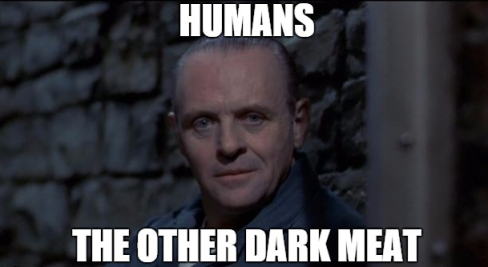
I liken humans to a tea cup. Whatever we are filled with is what will spill out when we are rattled. When the heat is on (story problem) do we rise to the occasion or is our darker self revealed?
A great example of this is Stephen King’s The Mist. Sure it is a monster story. Scary strange mist, creatures in the mist, tentacles, blood, OMG! And if King had made the focus of the story the aliens, we would have a pretty forgettable movie.
Oooh a giant tentacle!
What now?
A BIGGER TENTACLE!
What now?
Have it eat someone!
Oooh! And now?
Have it eat MORE people!
ZZZZZZZZZZZZ
You can clearly see how this would have become a seriously tedious story if it simply relied on a string of “worsening” situations. But King is too smart for that. No, he appreciated what I talked about a moment ago. Sure humans are a nice enough bunch so long as there is food and shelter and the power works. But take away the conveniences. Scare people, really scare them and we get to see who they really are.
We take that external problem and make it internal.
The source of conflict (and in this case horror) has far less to do with the aliens outside and much more to do with what that outside problem does to the people trapped in the grocery store. We see the characters fall all along the spectrum. The ordinary and unremarkable cashier risking his life to help others contrasted against the “good Christian” woman escalating to full scale cult leader (human sacrifice to appease the beasts outside included) in less than 24 hours.
The monsters inside become far scarier than whatever is outside.
If we think about it, this is what makes for a good ghost story, too. It is less about what the ghost is or isn’t doing and more about what it is revealing about those being tormented. A fantastic example of this is Prisoner of Hell Gate which I recommend any time, but especially for some really great Halloween reading.
Strand a boat full of college students on an island where Typhoid Mary died and sit back and watch the fireworks. Again, the horror is less to do with the island and more to do with what the peril brings out in the people.
I also recommend Dennis Lehane’s Shutter Island and Dean Koontz’s What the Night Knows.
This Applies to ALL Good Fiction
But as I mentioned, this “turning the external internal” is what makes ALL great fiction. Toss in a problem then watch what it does to the people around it. In Big, Little Lies (general fiction) a Kindergarten schoolyard rumor escalates to murder. The story really has nothing to do with the murder and more to do with how a simple little rumor has the power to undo lives. It is the rumor that brings out the best and the worst in people.
Fiction is about problems and then putting on the pressure. The story problem serves as a crucible. We can make our story forge so hot it rivals the surface of the sun, but unless we toss the character(s) in it? Doesn’t matter how hot it is. It is our job (no matter the genre) to poke and prod and expose that which people fear. Hone in on the pain points and THAT is what makes for dimensional writing from the fear of burying your own child (Steele Magnolias) to the fear of being invisible (Fried Green Tomatoes) to the fear of being powerless (The Labyrinth).
Writers are brokers of fear
October 19, 2016
Finish NaNoWriMo—Plan to Succeed with the Tools to Get There

Today I have a special treat from a long-time writing friend of mine, Kait Nolan, introducing a cool tool by another good friend Susan Bischoff. This is great information for any writer that will serve us far beyond November because this goes beyond NaNoWriMo.
I have said this before and will say it again and again. If we hope to ever make a living writing novels, we are not going to make our income off ONE book. We must harness the power of compounded sales. Aside from the rare fluke, this is always how writers have become pop culture staples. From Stephen King to Neil Gaiman to Anne Rice to Larry McMurtry, careers are made with more than one book.
But if it takes us five years to write the first novel and another five to edit the mess into a final product? We might want something to speed up the process and Kait is here to help with that. Additionally, NaNoWriMo is no easy feat. Great we finish, but better if we finish with something that can be shaped into something others want to pay to read. Ending up with an unsalvageable mess CAN be avoided.
I do a lot of teaching on this blog and feel free to roam the archives. But I also like taking time to direct you guys to the best resources to get you where you want to go.
Take it away, Kait!
National Novel Writing Month is nearly upon us.
Writers everywhere are making their vows to buckle down and crank out 50,000 words during the month of November. It’s one of the headiest times to be a writer all year, with hundreds of thousands embarking on the same mission. Never will you find more opportunities for sprint partners or writer camaraderie. There’s a fever that goes along with November that’s absolutely unparalleled. We are mighty! We are invincible! We are writers!
There are differing levels of preparation that go into NaNo.
A deep clean of the house (because you know you’re not cleaning a thing until December 1st). Maybe an epic weekend prepping freezer meals so that your family has something other than fast food to eat. A sharpening of the blade you’ll use to threaten whoever dares interrupt your precious writing time. And, of course, pre-planning of the NaNo novel itself.
The Pantser
Some people start with the vaguest of ideas and figure they’ll pants their way through it, fueled by Red Bull and raw enthusiasm. Most of those will fall by the wayside as the month rolls on, drowning under real world concerns or floundering in the land of asdfjkl; because they can’t think of what comes next. If they finish NaNo at all, they look something like this.
The Planner
Others may develop deep and detailed character dossiers or do massive worldbuilding, complete with annotated map. Still others may wander down that road of outlining so that they know exactly where they’re headed. Or think they do.
These folks are likely to get further in the process because they have, to some extent, eliminated the guesswork that is such a timewaster. Even some kind of plan will keep you plodding forward in your plot and get you across that finish line. And that’s AWESOME. Because hundreds of thousands of people never do that.
Finishing is HUGE.
But wouldn’t it be better if, when you crossed that finish line, you actually had a book that resembled…you know, a book? As in a story that bears strong resemblance to a salable tale? Because as fantastic as writing “The End” is, if you didn’t do the right kind of planning, chances are the crash from that NaNo high is going to be brutal when you realize you have to write the whole thing over from the beginning.
The Answer
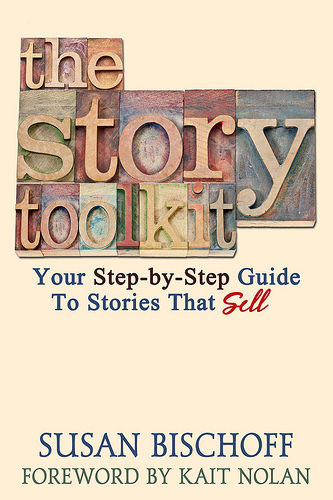 I want to tell you how to avoid that. I want to share with you the deep secret I’ve been using for years to crank out novels that are, other than limited revisions, done right the first time. That system is The Story Toolkit by Susan Bischoff of The Forge Book Finishing.
I want to tell you how to avoid that. I want to share with you the deep secret I’ve been using for years to crank out novels that are, other than limited revisions, done right the first time. That system is The Story Toolkit by Susan Bischoff of The Forge Book Finishing.
Susan has been my editor for more than a decade, and the Toolkit arose, in part, because she kept seeing clients making many of the same mistakes, over and over. She wanted to create a tool that would, effectively, take somebody by the hand and lead them from idea to a solid, ready-to-write outline. And I’m proof that it works. This is the system that has allowed me to put out multiple books a year, despite the fact that I’m working one full-time and another part-time job, on TOP of writing. It’s all about efficiency and working smarter. Through a series of worksheets, The Story Toolkit asks the RIGHT questions to help you hone your glimmer of an idea into a viable premise and clear concept. Y’all, it’s like having a developmental editor sitting on your shoulder, helping point out the weak spots so you can shore them up before you even start! I don’t write my books without it.
So if you’re planning to NaNo (or if you’re just looking to improve your writing game), I encourage you to grab your copy of The Story Tookit today so that you can plan your novel the smart way and increase your odds of doing a victory dance come midnight November 30th! The ebook version is on sale for an introductory NaNoWriMo price of $2.99 until the end of October. Or you can nab the paperback for handy-dandy reference.
***
Thanks so much Kait! I am also offering a class this Saturday (Plotting for Dummies) and two hours of this class can literally save your Nano novel. Yes, this will even work for the Pantsers! All recordings come with purchase price even if you can’t make the actual class. And sure, the class is $35 but that beats the $3500 it would take to get a developmental editor to repair a mess. Also, feel free to peruse my archives for all kinds of free instruction. We really do want you to succeed!
What are your thoughts? Are you tired of starting stories that seem great to begin with then fizzle? Have you finished NaNo and what tools did you enjoy using? Have you ordered the razor wire to put around your desk next month?
I LOVE hearing from you!
To prove it and show my love, for the month of OCTOBER, everyone who leaves a comment I will put your name in a hat. If you comment and link back to my blog on your blog, you get your name in the hat twice. What do you win? The unvarnished truth from yours truly. I will pick a winner once a month and it will be a critique of the first 20 pages of your novel, or your query letter, or your synopsis (5 pages or less).
Check out the NEW Plotting for Dummies class below!
All W.A.N.A. classes are on-line and all you need is an internet connection. Recordings are included in the class price.
Upcoming Classes
NEW CLASS!
NEW CLASS! FRIDAY October 21st Plotting for Dummies
Are you tired of starting book after book only to lose steam and be unable to finish? Do you finish, but then keep getting rejected? Do you finish, but it takes an ungodly amount of time? Sure, great you land an agent for your book, but you don’t have FIVE YEARS to write the next one?
This class is here to help. The writers who are making an excellent income are not doing it off ONE book, rather they are harnessing the power of compounded sales. This class is designed to help you learn to plot leaner, meaner, faster and cleaner (even for PANTSERS!)
Learn the basic elements of plot, various plotting techniques, how to test your seed idea to see if it is even strong enough to be a novel and MORE!
SATURDAY, October 22nd Blogging for Authors
Blogging is one of the most powerful forms of social media. Twitter could flitter and Facebook could fold but the blog will remain so long as we have an Internet. The blog has been going strong since the 90s and it’s one of the best ways to establish a brand and then harness the power of that brand to drive book sales.
The best part is, done properly, a blog plays to a writer’s strengths. Writers write.
The problem is too many writers don’t approach a blog properly and make all kinds of mistakes that eventually lead to blog abandonment. Many authors fail to understand that bloggers and author bloggers are two completely different creatures.
This class is going to cover:
How author blogs work. What’s the difference in a regular blog and an author blog?
What are the biggest mistakes/wastes of time?
How can you effectively harness the power of algorithms (no computer science degree required)
What do you blog about? What topics will engage readers and help create a following?
How can you harness your author voice using a blog?
How can a blog can help you write leaner, meaner, faster and cleaner?
How do you keep energized years into your blogging journey?
How can a blog help you sell more books?
How can you cultivate a fan base of people who love your genre.
Blogging doesn’t have to be hard. This class will help you simplify your blog and make it one of the most enjoyable aspects of your writing career.
For those who need help building a platform and keeping it SIMPLE, pick up a copy of my latest social media/branding book Rise of the Machines—Human Authors in a Digital World on AMAZON, iBooks, or Nook.
~*~
Kait Nolan is stuck in an office all day, sometimes juggling all three of her jobs at once with the skill of a trained bear—sometimes with a similar temperament. After hours, she uses her powers for good, creating escapist fiction. This Mississippi native has something for everyone, from short and sweet to Southern contemporary romance to action-packed paranormal—all featuring heroes you’d want to sweep you off your feet and rescue you from work-day drudgery. When not working or writing, this reformed Pantser is hanging out in her kitchen cooking and wishing life were a Broadway musical.
October 17, 2016
What it Takes to Be a “Real” Writer
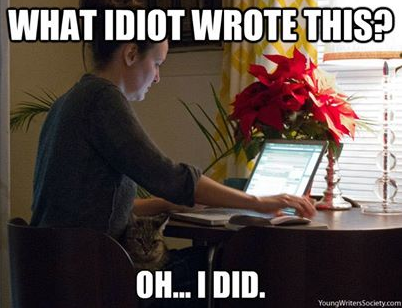
Since we are only a couple weeks away from NaNoWriMo, I thought this would be a great topic to discuss. If you don’t know what NaNoWriMo is? You aren’t a real writer. Kidding! Calm down

